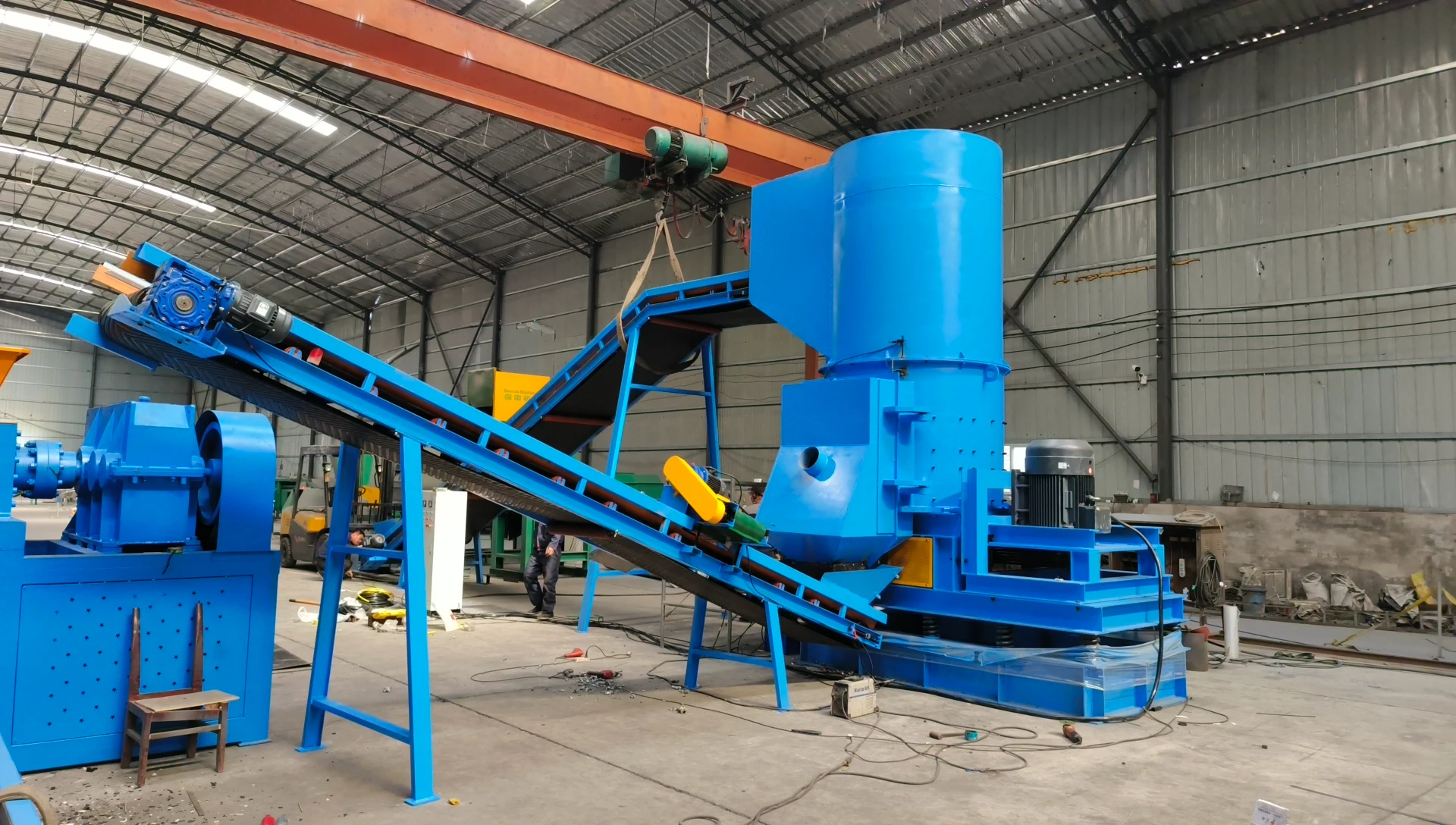

Dec . 12, 2024 09:18 Back to list
Understanding Industrial Crushers A Key Component in Material Processing
Industrial crushers play a vital role in various industries by breaking down large materials into smaller, manageable pieces. These machines are essential in sectors such as mining, construction, recycling, and waste management, where they help facilitate smoother processing operations. In this article, we will delve into the functioning, types, and applications of industrial crushers, as well as explore their significance in enhancing operational efficiency.
What are Industrial Crushers?
Industrial crushers are heavy-duty machines designed to reduce the size of bulk materials. They accomplish this through various mechanical processes including compression, impact, and shear. The primary goal of an industrial crusher is to transform larger raw materials, such as rocks, ores, and waste products, into smaller pieces that can be easily handled, transported, or further processed.
Types of Industrial Crushers
There are several types of industrial crushers, each suited for specific applications and materials
1. Jaw Crushers These machines operate on the principle of compression. Material is fed into a V shaped chamber where the jaws crush it between them. Jaw crushers are highly efficient for hard and abrasive materials and are commonly used in mining, metallurgy, and construction.
2. Hammer Crushers Utilizing a series of swinging hammers, hammer crushers apply impact forces to break down materials. They excel in processing softer materials like coal and gypsum. Their versatility allows for a range of applications, including quarrying and recycling.
3. Impact Crushers These crushers work by using high-speed impact to break material. They are effective for reducing softer materials and are often used in recycling operations, where their ability to create a uniform particle size is invaluable.
4. Cone Crushers Suitable for crushing hard and abrasive materials, cone crushers utilize a rotating cone within a chamber to compress materials. They are frequently used in mining and aggregate industries for their superior size reduction capabilities.
5. Roll Crushers These devices use rolls to crush materials in a manner similar to that of jaw and cone crushers. Roll crushers are especially effective for brittle materials and are often used in the coal and salt industries.

6. Gyratory Crushers Similar to cone crushers, gyratory crushers have a conical shape, but operate with a horizontal rotation. They are extremely effective for large-scale mining operations where high tonnage is required.
Applications of Industrial Crushers
The applications of industrial crushers are vast and varied. In the mining industry, crushers are pivotal for processing ores and other geological materials into smaller, more manageable sizes. In construction, they aid in preparing aggregate materials for concrete and asphalt production.
Moreover, industrial crushers are essential in the recycling industry where they help process waste materials such as glass, metals, and plastics. By breaking down these materials, crushers facilitate their reuse, thereby promoting sustainable practices.
In the waste management sector, crushers play a significant role in reducing the volume of waste, making it easier to handle and transport. This process not only helps in efficient landfilling but also aids in improving recycling rates by producing smaller, more uniform materials.
The Significance of Industrial Crushers
The significance of industrial crushers cannot be overstated. By efficiently breaking down large materials, these machines help lower transportation costs, reduce storage space requirements, and enhance the efficiency of downstream processing operations. This, in turn, leads to improved productivity and profitability for businesses.
Additionally, the advanced features of modern industrial crushers allow for better control of the particle size, leading to higher quality end products. New technologies, such as automated systems and digital controls, further improve the efficiency and accuracy of crushing processes, making them indispensable in today’s industrial landscape.
Conclusion
In summary, industrial crushers are a cornerstone of material processing across multiple industries. From ensuring the efficiency of mining operations to facilitating recycling and waste management, these machines are crucial for optimizing production and promoting sustainability. As technology continues to evolve, so too will the capabilities and functionalities of industrial crushers, further enhancing their role in shaping the future of material processing. Whether in construction, mining, or recycling, the importance of industrial crushers is evident in their ability to transform raw materials into valuable resources.
Latest news
Troubleshooting Common Eddy Separator Problems
NewsJul.04,2025
The Role of Metal Recycling Plants in Circular Economy
NewsJul.04,2025
The Impact of Recycling Line Pickers on Waste Management Costs
NewsJul.04,2025
Safety Features Every Metal Shredder Should Have
NewsJul.04,2025
How Industrial Shredders Improve Waste Management Systems
NewsJul.04,2025
How Cable Granulators Contribute to Sustainable Recycling
NewsJul.04,2025